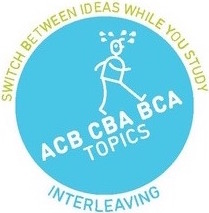2017 Spring Professional Development Articles
Transparency in Learning and Teaching Project
Transparent Methods
Transparent teaching methods help students understand how and why they are learning course content in particular ways. This list of options is adapted frequently as faculty participants identify further ways to provide explicit information to students about learning and teaching practices. Faculty participants usually employ one option from the list and students indicate the impact of this small change when they complete an online survey (taking about four to five minutes) at the end of the course.
How To Create Learning Playlists In A Textbook World
"Learning playlists combine the formless nature of digital content with the need for need for unique content. They need not be asynchronous. Fully social collaboration is possible within and across the lists. They can be projects, traditional academic work, or help inform Place-Based Education. Of course, they require rethinking of resources, processes, and even the goals of learning. There is no single way they look or operate. Rather, they’re a movement away from rigid sequence towards the just in time, just enough, just for me philosophy. To fully realize the potential of learning playlists will require the learner to take on a central role, and they’ll need support here. Educators can feel antsy about this, worrying that many students don’t know what they know, and giving them the freedom to control learning pathways and content sequence can sound shaky."
11 Habits of an Effective Teacher
1. ENJOYS TEACHING
2. MAKES A DIFFERENCE
3. SPREADS POSITIVITY
4. GETS PERSONAL
5. GIVES 100%
6. STAYS ORGANIZED
7. IS OPEN-MINDED
8. HAS STANDARDS
9. FINDS INSPIRATION
10. EMBRACES CHANGE
11. CREATES REFLECTIONS
6 Powerful Learning Strategies You MUST Share with Students






A Questioning Toolkit
"Portions of the Questioning Toolkit should be introduced as early as Kindergarten so that students can bring powerful questioning technologies and techniques with them as they arrive in high school."
Never Too Late: Creating a Climate for Adults to Learn New Skills
"When it comes to kids, growth mindset is a hot topic in education. Studies indicate that children who view intelligence as pliable and responsive to effort show greater persistence when encountering new or difficult tasks. In contrast, children who view intelligence as static or “fixed” have a harder time rebounding from academic setbacks or are reluctant to take on new challenges that might be difficult.Students are not the only ones encountering new challenges at school: Teachers face an evolving profession, driven in part by technology and a rapidly changing economy."13 Common Sayings to Avoid
1. "You have potential but don't use it." Students feel insulted when they hear this, and while some accept it as a challenge to do better, more lose their motivation to care. Instead, say in a caring way, "How can I help you reach your full potential?"
2. "I'm disappointed in you."
3. "What did you say?"
Do you really want to know what was whispered? It's better to ignore that unheard comeback and move on. You don't always need to have the last word.
4. "If I do that for you, I'll have to do it for everyone."
5. "It's against the rules." Rules are about behavior.
6. "Your brother/sister was better than you." Comparisons can only lead to trouble regardless of which side of the coin the student is.
7. "I like the way Toby is sitting." This is a manipulation to get the class to sit down.
8. "You'll never amount to anything." Not only is this an insult, but it is usually wrong.
9. "Who do you think you are?" This communicates sheer arrogance and is asking for a power struggle.
10. "Don't you ever stop talking?"
11. "I'm busy now." Don't dismiss a student this abruptly if they need you in some way.
12. "The whole class will miss _______ unless someone admits to _______." Collective punishment is never appropriate.
13. "What is wrong with you?"
Why Character Can’t Be Taught Like The Pythagorean Theorem
https://ww2.kqed.org/mindshift/2016/06/09/why-character-cant-be-taught-like-the-pythagorean-theorem/
"This is big news for those of us who are trying to figure out how to help kids develop these abilities — and, more broadly, it’s important news for those of us seeking to shrink class-based achievement gaps and provide broader avenues of opportunity for children growing up in adversity. If we want to improve a child’s grit or resilience or self-control, it turns out that the place to begin is not with the child himself. What we need to change first, it seems, is his environment."The Teenage Brain Is Wired to Learn—So Make Sure Your Students Know It
"The brain’s prefrontal cortex, which functions as the control center for executive functions such as planning, goal setting, decision making, and problem solving, undergoes significant changes during the teenage years. In an NPR interview, Laurence Steinberg, author of Age of Opportunity: Lessons From the New Science of Adolescence, notes that ages 12 to 25 are a period of extraordinary neuroplasticity. “Science suggests that it’s important for kids to be challenged and exposed to novelty in order to facilitate healthy development of brain systems that are important for things like self-regulation,” Steinberg says."
The Sooner You Expose A Baby To A Second Language, The Smarter They’ll Be
Could Rubric-Based Grading Be the Assessment of the Future?
"For the first-year pilot study they focused only on three of those outcomes: written communication, critical thinking and quantitative literacy. The faculty worked together to write rubrics (called Valid Assessment of Learning in Undergraduate Education or VALUE rubrics) that laid out what a progression of these skills looks like. The rubrics were tested on campuses and rewritten three times before reaching a final version.
Once the rubrics were set, faculty from all 59 universities were trained on how to use them. They went through norming sessions where each person would score a piece of student work using the rubric, and they’d come together to make sure people were assigning a similar grade."


No comments:
Post a Comment